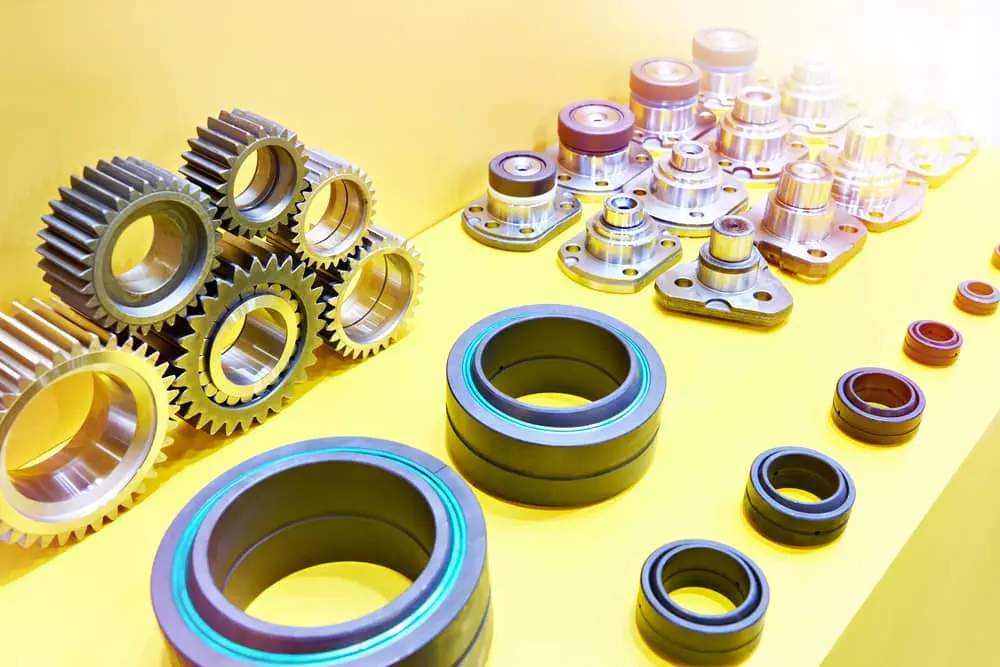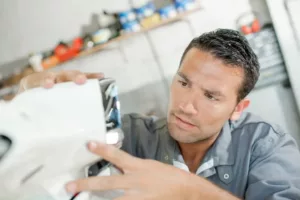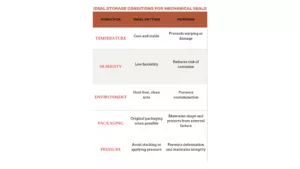
How Do You Protect Mechanical Seals Effectively
How do you protect mechanical seals? This is no mere technical question. It’s an important issue in the machinery world. Those small but powerful parts of mechanical seals serve widely in different industries. They prevent fluids and contaminants from entering and make machines run smoothly. They are the unsung helpers hidden behind every industrial undertaking. But their importance is often underestimated until something goes wrong. In this essay, we’ll take a look at how these vital parts should be properly protected. Because let’s face it, a well-guarded mechanical seal is a key ingredient to giving your machinery long life and rock-solid reliability.
Understanding Mechanical Seals: Basics and Significance
What Are Mechanical Seals?
Mechanical seals are the guardians of your machinery at their very essence. They:
- Keep different fluids apart.
- Prevent leaks and stop contamination.
- Ensure optimal performance of equipment.
Now, these little monsters are used in everything from your car’s motor to industrial tower pumps of enormous size. If we didn’t have them, there would be many equipment failures and downtimes.
Poor Maintenance Causes Problems
Now, picture a world in which mechanical seals are not maintained properly. It’s not a pretty picture. Here are a few grim scenarios:
- Leakages: This is the big one. A poor seal frequently results in leaks that may damage machinery and even endanger safety.
- Increased Costs: Add to this the idle time, the necessary repairs and even environmental fines. It all adds up quickly.
- Reduced Equipment Life: Wear and tear are wear and tear, but thrown in a defective seal with faulty via structures to further shorten its lifespan- that’s theft on the grand scale.
In short, the health of mechanical seals is directly linked to the health of your machinery and, by extension, your business. Neglect them, and you’re in for a world of trouble. Look after them; they’ll keep your operations running like a well-oiled machine. Literally.
How Do You Protect Mechanical Seals: Essential Practices
The solution to the question, “How do you protect mechanical seals?” is a combination of prevention and good practice. It’s a matter of being in front rather than back. On the other hand, their longevity and performance are more a matter of intelligent care than rocket science. Therefore, what are the principal factors that keep these seals razor-sharp?
Regular Inspection
Visual Checks: Check carefully for scratches or wear. Sometimes, just a casual glance reveals the defect.
Performance Monitoring: Watch closely for changes in equipment performance. Odd noises or drops in efficiency can be alarm bells.
Timely Maintenance
Routine Replacement: Before a seal breaks down, don’t wait. Replace as recommended by the manufacturer.
Professional Servicing: Sometimes, only an expert touch will do. But they’re likely to miss problems that professionals can spot.
Environmental Considerations
Temperature and Pressure: Check that seals fall within their allowable temperature and pressure ranges. Such constraints can result in early failure.
Chemical Compatibility: The materials your seals come in contact with. Some chemicals wear seals faster than you can say “maintenance.”
Remember, protecting mechanical seals isn’t just a one-off task. It’s an ongoing commitment. A little bit of care goes a long way in preventing big headaches down the road. So, keep these practices in mind, and your seals – and machinery – will thank you for it.
How Should Seals Be Stored: Best Practices
The way you store mechanical seals can be a matter of life and death. It’s not just putting them away. The question is how to maintain their integrity intact. Here’s how to ensure they stay in prime condition until their next use:
Ideal Storage Conditions
Temperature Control: Keep them in a cool, dry place. If exposed to extremes of temperature, seal materials will warp or crack.
Humidity Levels: Aim for a low-humidity environment. Moisture will cause corrosion and wear down the seal.
Dust-Free Area: However, keep them away from dust and dirt. Such particles can adhere to sealing surfaces, leading later on to failures.
Tips for Damage Prevention
Original Packaging: If possible, store the seals in their original packaging. It’s designed to protect them.
Avoid Pressure: Pile objects too heavy to push on top of the seals. They can be rendered ineffective through pressure.
Check Regularly: Seals in warehousing need to be checked regularly, too. Inspect for deterioration or damage from time to time.
Why Does My Mechanical Seal Keep Leaking: Common Causes
If you are asking, ‘Why does my mechanical seal keep leaking?’, others wonder the same thing. Leaking seals are one of the two big headaches, and understanding why they leak can help you cure it. Here’s a rundown of the usual suspects:
Common Reasons Behind Seal Leaks
Improper Installation: Either way, it can be ignored, but faulty installation is the usual reason. Even a tiny misalignment will cause leaks.
Wear and Tear: Seals don’t last forever. Gradually, they wither and become useless.
Incompatible Materials: A mismatched seal-fluid combination is a recipe for leaks.
Troubleshooting and Prevention
Double-Check Installation: Install seals per specifications. If unsure, ask an expert.
Regular Inspections: Beware of wear and tear. Replace seals before they fail.
Right Material for the Job: Select seal material based on fluid type. This compatibility can help reduce the chance of leaks.
Analyzing these causes and taking preventative action can reverse the tide in your war against seal leaks. However, prevention is always better than cure.
How Do I Know If My Mechanical Seal Is Bad: Identifying Signs
This is one of the most common questions: How Do I Know If My Mechanical Seal Is Bad? A malfunctioning mechanical seal can lead to major disasters involving the main machinery. The early warning signs should not be ignored! Here are the red flags to watch out for:
How To Tell That a Mechanical Seal Is Starting To Fail
Unusual Leakage: The most obvious sign. Leakage that is abnormal or increased, like a red flag.
Strange Noises: If you hear grinding, squealing or other abnormal sounds from the seal area, then there is something wrong.
Visible Wear or Damage: If the seal face is chipped, cracked, or eroded, there’s no doubt it must be replaced.
Timely Actions for Bad Seals
Immediate Inspection: If you discover any of these signs, check the seal immediately.
Consult a Professional: If in doubt, ask an expert. Actually, sometimes only a special eye can see seal problems.
Preventive Replacement: Don’t wait until there is a total collapse. If the seal is worn out, replace it in advance.
Advanced Protection Strategies for Seals
As a result, in the mechanical seals world, to remain competitive means adequate protection. Here’s how technology and innovative methods are setting new standards:
Sophisticated Protection Methods
Condition Monitoring Systems: These systems constantly check on the seals and will warn you before something breaks.
Automated Lubrication: Seal life can be increased many times over by proper, regular lubrication.
Material Advancements: New seal materials are made to face more severe conditions and last longer.
Technology’s Role in Seal Longevity
Predictive Maintenance: According to data analysis, seal failure is foreseeable and can be prevented in time by timely actions.
Seal Design Software: All kinds of fine software can adapt the seal design to suit a given application and lower the failure rate.
Sealing the Deal on Seal Protection
In answering “How do you protect mechanical seals?”, we’ve explored the essence of vigilance, from recognizing signs of wear to embracing advanced protective strategies. Remember, proactive measures and regular check-ups are your best allies in this mission. Trust in Platinum Performance Products to keep your seals, and thereby your machinery, in top-notch condition. Seal protection is not just maintenance; it’s an investment in reliability and efficiency.



